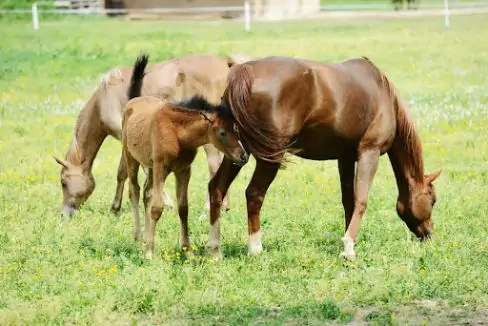Owning horses is both a passion and a substantial investment for many horse enthusiasts. While the rewards of having these majestic animals are plenty, the costs associated with their upkeep can be daunting. Fortunately, there are several strategies you can employ to maintain the health and happiness of your equine companions without breaking the bank. From optimizing feeding strategies to making the most of DIY horse care techniques, this article will explore some of the most effective ways to keep equine care costs down while ensuring your horses thrive in a comfortable environment.
Enjoy Cost-Efficient Feeding Strategies
Feeding horses can be one of the larger components of your budget, but there are ways to economize without compromising nutrition. Utilizing bulk purchasing options for hay and grains decreases individual costs and ensures your staples last longer. In addition, some barn owners find feeding in natural grazing pastures cuts down on unnecessary feeding expenses.
Local co-ops or farmer connections are also beneficial for finding deals on feed. It’s worth exploring alternative feed sources such as beet pulp or soybean hulls as they can offer nutritional benefits at reduced costs. Regularly consulting with an equine nutritionist can further refocus feeding regimens on essential nutrients, aligning with your budget and reducing waste.
According to the University of Minnesota, the U.S. is home to over 7.2 million horses, which underscores the importance of cost-efficient feeding strategies. Adequate nutrition supports the wellbeing of all horses, whether engaging them in casual rides or competitive sports. By establishing a well-planned feeding strategy, barn owners contribute not just to the health of their horses but also to the broader equestrian community.
Implement DIY Maintenance Techniques
Regular maintenance is crucial to keeping your barn and equipment in optimal condition without high expenses. Tack care, for example, is an area perfect for a DIY approach where learning to clean and condition leather can prolong the life of saddles and harnesses. Simple online tutorials can guide you through the process of minor repairs, saving the cost of professional services.
Additionally, consider scheduling regular barn inspections yourself to identify potential issues early. This allows you to address problems, such as leaky roofs or damaged fences, before they escalate into larger repairs requiring professional intervention. According to Forbes, 42% of homeowners are concerned that weather events like wind and rain can lead to damage, making proactive maintenance essential.
Bringing finesse to DIY projects often involves developing new skills that can benefit your home and barn. By combining these abilities with creative problem-solving, you contribute to a cost-effective maintenance plan. Empowering yourself and perhaps even those in your equine community to take charge of barn upkeep can foster a sense of pride and sustainability.
Opt for Preventative Health Care
Investing in preventative health care for your horses can significantly reduce long-term veterinary expenses. Regular vaccinations and deworming are foundational elements of a comprehensive health care plan that prevents costly illnesses down the line. Providing proper grooming can also stave off infections and skin conditions that could lead to expensive treatments.
Simple habits like consistent hoof care, in conjunction with professional check-ups, contribute to the overall health of horses. Regular monitoring for signs of distress or illness ensures that any problems can be addressed swiftly and efficiently. According to a survey of 800 homeowners by Bob Vila, 10% reported experiencing a tree falling on their homes, a reminder of how quickly unforeseen issues can arise and the importance of being prepared.
Structured preventative care is not just a precaution but a proactive approach to horse health. Over time, owners who emphasize preventative measures often observe improved longevity in their horses, which underscores the value of these efforts. Such a focus on health parallels the diligence homeowners apply to their domains, creating a cohesive strategy for maintaining all aspects of life.
Managing the cost of horse care does not mean sacrificing the quality of care your animals receive. By implementing cost-efficient feeding strategies, embracing DIY maintenance, and prioritizing preventative health care, you effectively streamline barn operations. Each initiative contributes to not only the financial health of your equestrian endeavors but also ensures a happy and thriving environment for your horses. The key lies in consistency, community engagement, and the willingness to adapt and learn, creating a sustainable and nurturing home for your cherished animals.

